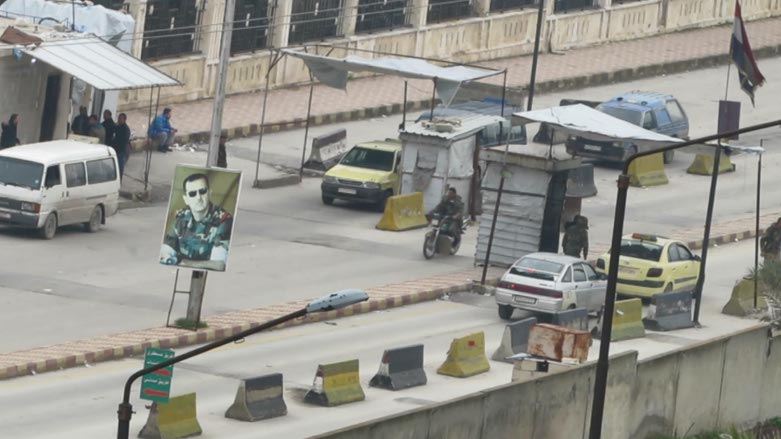Syrian government siege of Kurdish neighborhoods in Aleppo enters 43rd day

ERBIL (Kurdistan 24) – The Syrian government's siege of two Kurdish neighborhoods of Al-Ashrafiyyah and Sheikh Maqsoud in Aleppo entered its 43rd day on Monday, the UK-based Syrian Observatory for Human Rights (SOHR) war monitor reported.
Russian attempts to mediate between the Syrian government and Kurdish-led forces have proven fruitless.
The Fourth Division and State Security Service have reportedly prevented the entry of food, flour, and oil products to the two neighborhoods for the past 43 days, causing shortages of these essential products and price hikes.
Read More: Russia attempts to calm tensions between Kurds and Syrian government
In response, the Kurdish Internal Security Forces (Asayish) reopened the highway between the Qamishlomarket and the Nusaybin border crossing with Turkey on Monday. Syrian government forces had closed the road for over 11 years.
Moreover, the Asayish continue to pressure Syrian government-controlled areas in Hasakah and Qamishlo by blocking the inflow of flour and food to these neighborhoods. As a result, bakeries have stopped working there.
Read More: Tensions mount between Syrian Kurds and Damascus
On Apr. 21, Christian residents in the Syrian government-controlled al-Wusta neighborhood protested the Asayish blockade but did not demand an end to the Syrian government's ongoing siege in Aleppo.
"The Syrian government views the Kurdish zones in Aleppo as a chip to negotiate with the Autonomous Administration of North and East Syria (AANES) on the future political order in the country," Nicholas Heras, Deputy Director of the Human Security Unit at New Lines Institute in Washington DC, told Kurdistan 24.
"These zones in Aleppo are vulnerable to regime embargo and therefore easier targets for Damascus to apply pressure on the AANES."
